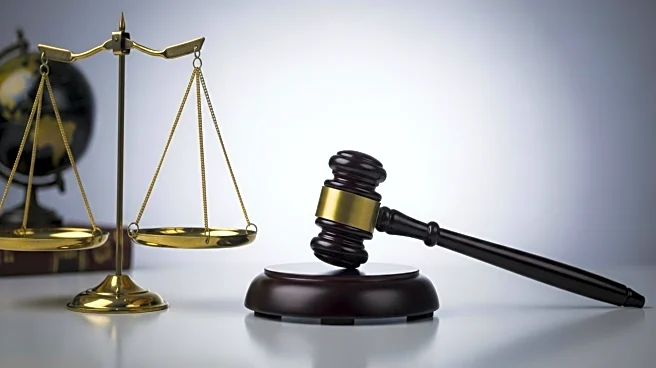What's Happening?
The Bar Council of India (BCI) has retracted its August 5 press release that accused Dentons Link Legal and CMS IndusLaw of violating foreign law firm regulations. This decision follows a directive from the Delhi High Court on August 21, which instructed the BCI to reconsider its public disclosure while judicial review of the show-cause notices issued to the firms is pending. During a hearing on August 28, the BCI informed the court of its intention to issue a new circular without naming the firms, as per the court's instructions. The interim injunction preventing the BCI from making a final decision on the show-cause notices remains in effect. Both firms have denied any regulatory violations, asserting that their alliance models comply with Indian laws and are structured under Swiss Verein, maintaining full Indian ownership and management.
Why It's Important?
The withdrawal of the notice by the BCI is significant as it addresses concerns of prejudice and reputational damage to the involved firms. This development highlights the ongoing debate over the regulation of international legal alliances in India. The case underscores the complexities of compliance with local regulations for foreign law firms operating in India. The outcome of this regulatory inquiry could influence future policies regarding foreign firm tie-ups and impact the legal industry in India, potentially affecting how international legal brands structure their operations in the country.
What's Next?
The BCI is required to file its counter affidavit within four weeks, with Dentons Link Legal given two weeks to respond thereafter. The court's decision on this matter will be crucial in determining the regulatory framework for foreign law firm alliances in India. The ongoing inquiry will continue to scrutinize the compliance of these firms with Indian regulations, and the final outcome could set a precedent for similar cases in the future.
Beyond the Headlines
This situation raises broader questions about the balance between global business practices and local regulatory compliance. The case may prompt discussions on the ethical and legal implications of international partnerships in the legal sector, potentially leading to reforms in how such alliances are governed under Indian law.








